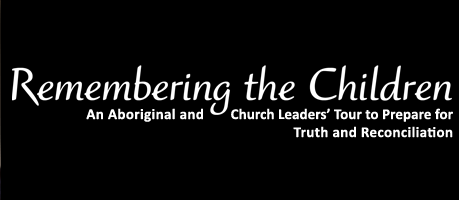

You are here:
Residential Schools – A Chronology
from the Assembly of First Nations
1857 - Gradual Civilization Act passed to assimilate Indians.
1870-1910 - Period of assimilation where the clear objective of both missionaries and government was to assimilate Aboriginal children into the lower fringes of mainstream society.
1920 - Compulsory attendance for all children ages 7-15 years. Children were forcibly taken from their families by priests, Indian agents and police officers.
1931 - There were 80 residential schools operating in Canada.
1948 - There were 72 residential schools with 9,368 students.
1979 - There were 12 residential schools with 1,899 students.
1980's - Residential School students began disclosing sexual and other forms of abuse at residential schools.
1990 - Phil Fontaine, National Chief of the Manitoba Chiefs goes public as the first Indian leader to tell the story of his own abuse in residential school and calls for recognition of the abuse, compensation and an apology for the inherent racism in the policy.
1991 - Several individual lawsuits are launched.
Some residential school survivor groups are formed.
1996 - The Royal Commission on Aboriginal Peoples Report is released and recommends that a public inquiry be held to investigate and document the abuses in Indian Residential Schools
The last federally run residential school, the Gordon Indian Residential School, closes in Saskatchewan.
1997 - AFN initiates negotiations with federal government officials for an out-of-court settlement for the residential school abuses.
Consultative exploratory dialogues take place between AFN, survivors, federal government and church officials to set out the Guiding Principles for resolution of residential school claims.
January - Government admits wrongdoing for the first time and issues a statement of regret to residential school survivors in the Statement of Reconciliation.
May - The Aboriginal Healing Foundation is established, with $350 million for survivors of residential schools.
2000 - Class actions launched by law firms.
2001 - Department of Indian Residential Schools Resolution Canada is formed to deal with the out of court settlement of residential school abuse claims.
2003 - November - Canada launches an Alternative Dispute Resolution process.
2004 - March - A conference is held at the University of Calgary Law School to examine the ADR process and delegates find it to be seriously flawed.
November - AFN, through an expert committee, publishes the Report on Canada’s Dispute Resolution Plan to Compensate for Abuses in Indian Residential Schools, which sets out the requirements for a holistic, just and fair settlement for all residential school survivors, the key elements of which are:
- a lump sum payment for all survivors of 10,000 and $3,000 per year for every year attended;
and early payment for the elderly; - a truth commission;
- a healing fund;
- a commemoration fund;
- a more comprehensive and fair and just process for the settlement individual serious physical, sexual and psychological abuse claims.
2005 - May 30 - Canada appoints the Hon. Frank Iacobucci to be the government representative in final settlement negotiations.
The announcement includes an $8,000.00 Advance Payment Program for eligible Elders 65 years of age and over as of May 30, 2005.
July - Negotiations with all parties commence in various locations in Canada.
November 30 - All parties to the negotiations sign the Agreement in Principle, incorporating all of the key AFN Report recommendations.
2006 - All parties commence negotiations leading towards a final settlement agreement.
April 24 - All parties sign a final agreement, which awaits final Cabinet approval.
2007 - March 22 - courts in seven jurisdictions approve the agreement
A legal and mandatory six-month opt-out period begins for residential school survivors to ensure that they receive accurate information to make informed choices about accepting or rejecting the IRSSA.
August 20 - that period ends with former IRS and their families accepting the IRSSA.
On September 19th, the Indian Residential Schools Settlement Agreement is finalized and implemented.
More information
- Anglican Church of Canada: Historical Sketch for Anglican Residential Schools
- United Church of Canada: History of Indian Residential Schools and the Church’s Apologies